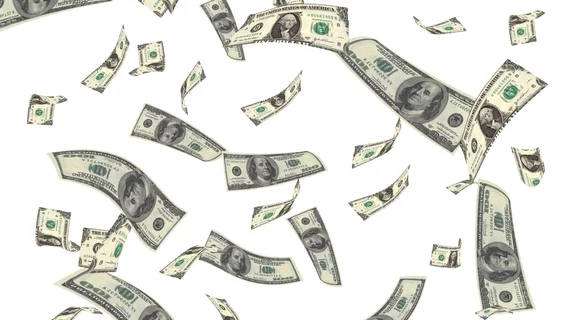Big-payout lotteries aimed at incentivizing Americans to get vaccinated for COVID-19 have largely flopped, according to a research letter running in JAMA Health Forum.
Economists from four universities conducted the study by analyzing daily state-level data from the Johns Hopkins vaccine tracker this spring and summer. They factored in lottery announcement dates from news reports, case counts from the New York Times and foot traffic at restaurants and bars from SafeGraph.
Their key finding: Of 19 studied states that ran these lotteries, all had post-announcement vaccination spikes that—if they had any jab-rate rises at all—were “very small in magnitude and statistically indistinguishable from zero.”
Lead author Dave Dhaval, PhD, of Bentley University in Massachusetts and colleagues comment that the disappointing response to chances for winning potentially life-changing prizes—Ohio’s Vax-a-Million, for one, gave out $1 million a week for five weeks—may reflect several factors:
Lottery-style drawings may be less effective than incentives that pay with certainty. Another possibility is that drawings were not an informative vaccine promotional strategy and that more complete messaging on vaccination would have been far more effective. Also, individuals who are hesitant to receive COVID-19 vaccinations may be influenced by vaccine misinformation.”
The authors acknowledge as limitations their project’s use of nonexperimental data, potential for confounding factors and uncertain generalizability to incentives for other vaccines.
Still, the study has supplied a “critically important” service, according to co-author Andrew Friedson, PhD, of the University of Colorado.
Speaking to the news division as that institution, Friedson suggests the advance lies in the study’s refutation of the cultural assumption that money alone can change everything—even in healthcare.
“While other studies have examined the effectiveness of a single lottery … our research looks at how all state lotteries to date have performed in tandem,” Friedson says. “This allows for a nationally applicable take on what works (or is this case, what doesn’t work) to encourage vaccinations.”
One better use of public monies to fight COVID, he posits, would be paying for “clear and complete messaging on vaccinations … such as awareness campaigns or more aggressive countermeasures against misinformation.”

